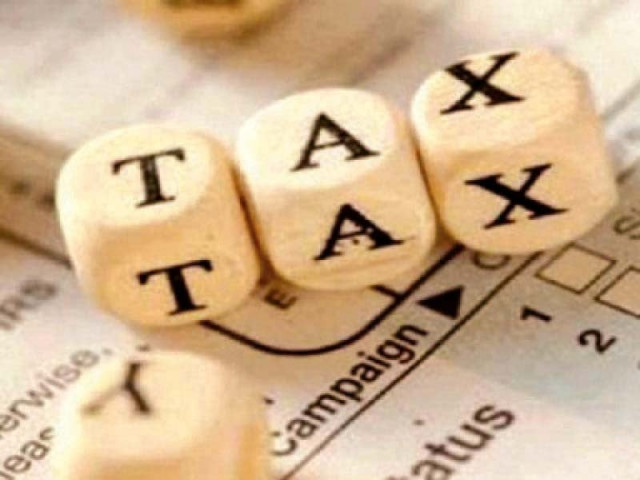Govt looking into ways to expand tax ambit
Also seeks other measures to bridge gap with IMF by end of month

The government is looking for new avenues to increase burden on the rich and may impose taxes on gifts, jack up rates for corporate and salaried sectors as well as allow unconditional import of gold to bring it into the tax ambit.
Other measures are also being considered to bridge gaps with the International Monetary Fund before the end of the month. The global lender still sees the government’s budget numbers unrealistic that require more taxation measures along with cuts in expenditures.
The Finance Bill 2022-23 that Miftah Ismail tabled in the National Assembly on June 10 may undergo some major changes to raise maximum taxes from the rich.
In addition to finding more sources of income to the satisfaction of the IMF, the government also wants to give a message to the less-privileged classes that the elite class is also paying more than usual annual tax contributions, according to the sources.
The IMF has not yet shared the draft of Memorandum for Economic and Financial Policies (MEFP) with Pakistan, which Finance Minister Miftah has hoped can be shared anytime. The MEFP becomes the base for a staff-level agreement on a set of measures needed to revive the programme and bring economic stability.
Where the government is set to enhance tax burden on the rich, it may partially reverse an earlier decision to increase income tax rate for commercial banks to 45% and instead bring it down to 42%, according to sources in the Federal Board of Revenue.
The FBR had proposed an increase in the cumulative income tax rate for the commercial banks to 42% from 39%, including super tax. But the federal cabinet had increased the rate to 45%, which Prime Minister Shehbaz Sharif has now agreed to lower to 42%.
One of the active proposals is to allow unconditional import of gold and start collecting taxes at the import and their domestic sales, according to the sources. The general import of gold is banned in Pakistan and the Import Policy Order links its imports with the condition that “importer shall arrange his own foreign exchange for the purpose”.
Due to this condition, almost all of the gold being sold in Pakistan is either smuggled or the recycled one is being sold by domestic households.
There are 29,000 registered jewellers in Pakistan but only 22 have installed point of sales machines that are interlinked with the FBR system. Almost every jeweller encourages the buyers to pay in cash to avoid the tax net.
Miftah wants to impose 2% customs duty and 2% adjustable income tax on the import of gold, according to the sources. He wants 3% sales tax on the retail stage of gold and silver. In addition to that, there is also a proposal to charge 1% withholding tax on sale of gold by the consumers at the jewellery shops.
Read Budget 2022-23: Speakers call for taxing the rich
If accepted, the move can help generate billions of rupees in taxes in addition to minimising smuggling.
There is a proposal to change the definition of relative in order to bring a major portion of the wealth that remains outside the tax net due to exchange of gifts that are exempted from tax.
The FBR has estimated the annual cost of gifts at around Rs1.2 trillion and a major portion of it can be taxed by limiting the definition of the relatives who can exchange tax-free gifts.
The gifts received from relatives, defined as “an ancestor, a descendant of any of the grandparents, or an adopted child, of the individual, or of a spouse of the individual; or a spouse of the individual or of any person” are exempted from taxation.
The definition had been relaxed last year when it was still broad but limited to “grandparents, parents, spouse, brother, sister, son or a daughter”. Now, the proposal is to limit the definition of the relative to only husband, wife and children.
However, some senior cabinet members of Prime Minister Shehbaz were against changing the definition, the sources said.
According to another proposal, the income tax rate for both salaried and business individuals can be steeply increased for those who earn over Rs1 million a month. There are hardly 12,000 people who have declared their monthly income of over Rs1 million with the FBR.
The sources said that the FBR was again considering the proposal to levy windfall tax for certain sectors by increasing their corporate income tax rate from current 29% to 32% and in some cases to 35%. The sectors that are on the radar of the government are steel, food, edible oil, automobile, gas and exploration firms, oil refineries as well as marketing companies.
As an alternative, the minimum income tax rate for these sectors could be increased to 1.5% against the standard rate of 1.25%. In some cases, the rate is even lower than the standard rate that could also be increased further. The FBR collects roughly Rs140 billion a year as minimum tax on turnover. Majority of the companies declare losses to evade taxes.
The government has committed with the Asian Development Bank and the World Bank to gradually phase out the minimum turnover tax, which is incapacitating the government to increase the standard minimum tax rate.
The corporate tax rate is 29% and if the FBR increases it by 1%, it will generate extra Rs8 billion a year. The chances of increasing the corporate tax rate across the board remain low, although the FBR has undertaken an exercise.
The FBR authorities also proposed to introduce slabs in case of newly introduced 2% Poverty Alleviation Tax over Rs300 million in incomes, but Finance Minister Miftah rejected the proposal.



















COMMENTS
Comments are moderated and generally will be posted if they are on-topic and not abusive.
For more information, please see our Comments FAQ